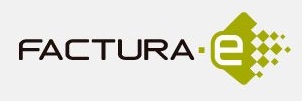Croatia and B2G eInvoicing
In 2015, the Ministarstvo gospodarstva, poduzetništva i obrta (Croatia’s Ministry of Economy, Entrepreneurship and Crafts) started work on the “Croatian eInvoicing Business-to-Administration Exchange Project”, financed by the CEF (Connecting Europe Facility), with the aim of boosting and promoting the use of eInvoicing by the country's public and private entities.
B2G eInvoicing became a reality in Croatia from 28 February 2016, when Decision 124/2015 came into force and e-invoicing became mandatory for all central procurement powers and entities. Since then, the receiving and processing of invoices in public procurements must be done in digital format.
To facilitate the interchange of electronic invoices, the Finance Agency (FINA), under the supervision of the Croatian Ministry of Economy, Entrepreneurship and Crafts, has developed the e-Račun platform. This works as an interchange centre connecting all economic operators. In turn, e-Račun is based on a public key infrastructure (PKI) and uses digital certificates to guarantee that each user has a registered identity and that confidential information is encrypted.
To connect to the platform, Croatian companies can:
- Use an electronic data interchange (EDI) system for documents that connects their accounting system or ERP to the e-Račun platform.
- Subcontract the generation of electronic invoices to an electronic invoice provider.
- Send their electronic invoices individually by creating an individual account on the e-Račun platform.
Similarly, in order to send eInvoices, the Croatian government recommends using the standard format OASIS UBL 2.1, although it also accepts the Cross Industry Invoice (CII) standard.
May 2017 saw the completion of the “Croatian eInvoicing Business-to-Administration Exchange Project” and a few months later, in September 2017, the Ministry received a second project to promote “eInvoicing for Croatian public authorities (eICPA)”, aligning with Directive 2014/55/EU and supporting the implementation of European eInvoicing.
The Ministarstvo gospodarstva, poduzetništva i obrta is currently preparing a third stage of the project, with the objective of co-funding the project for the local and regional administrations.
Download our Whitepaper
SERES has written a White Paper on “Electronic Invoicing in Europe” which sets out in detail the progress that is expected for eInvoicing in Europe (Albania, Germany, Andorra, Austria, Belgium, Belarus, Bosnia and Herzegovina, Bulgaria, Cyprus, Croatia, Denmark, Slovakia, Slovenia, Spain, Estonia, Finland, France, Greece, Hungary, Ireland, Iceland, Italy, Kosovo, Latvia, Lithuania, Luxembourg, Macedonia, Malta, Moldova, Monaco, Montenegro, Norway, The Netherlands, Poland, Portugal, the United Kingdom, the Czech Republic, Romania, Serbia, Russia, Sweden, Switzerland, Turkey and Ukraine).
It is the perfect guide to understand what your company is facing if it wants to use eInvoicing globally.

